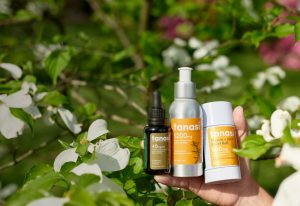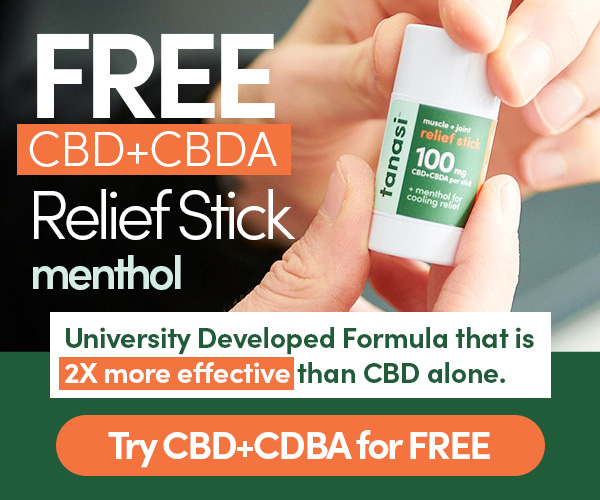Is CBDa and CBD Addictive?
Posted on March 24th, 2023
CBD has exploded in popularity in recent years. According to a recent study, one in four adults in the United States will use CBD products in 2022. Celebrities like Jennifer Aniston and Mandy Moore are vocal fans. And now these products can be found on store shelves across the country.
But the research surrounding cannabidiol shows that there’s reason to add something to your CBD, and that’s CBDa. The research behind our patent-pending, 1:1 CBD to CBDa formulation shows that this combo is, in fact, 2X more effective than products containing CBD alone. But, with that being said, many people still have additional questions. And some of the most important surround safety. That’s why, today, we’ll address questions like: Is CBD addictive? Is CBDa? And how can you use these compounds safely?
Thankfully, experts have taken a close look at cannabidiol’s addiction potential, along with that of other hemp extracts, including CBDa. So, if you have concerns about dependency, addiction, and other issues, read on to find the information you need.
What Is Addiction? 
The brain’s mesolimbic dopamine pathway (often referred to as the reward circuit) releases a substance called dopamine when it expects a reward. Dopamine gives us a sense of pleasure and satisfaction. It plays a role in motivation, mood, the decision-making process, and more.
When someone suffers from addiction, this part of the brain no longer functions properly. As a result, you can obsessively crave the addiction. Then, you feel compelled to use that substance even when it leads to serious consequences.
Addiction can be both psychological and physical. If you’re physically addicted to a substance, the cells in your body can no longer function without the substance. This can lead to withdrawal symptoms such as chills, nausea, body aches, or diarrhea.
While psychological addiction does not involve physical withdrawal symptoms, sufferers still feel compelled to use the substance they’re addicted to. Both types of addiction can have severe, negative impacts on a person’s daily life.
Addictive Substances
Certain substances are known for their addictive properties. Nicotine, which is found in cigarettes and other tobacco products, is highly addictive. In fact, it’s the most common type of addiction in the United States. An estimated 60 to 80% of smokers meet the criteria for drug dependence.
Cocaine binds to dopamine receptors in the brain. In the short-term, this produces feelings of euphoria. But in the long run, it makes the substance extremely addictive. Although alcohol isn’t a drug, it’s also incredibly addictive. Annually, approximately 100,000 people die because of alcohol abuse.
The opioid crisis has had a staggering impact. In 2018, it caused two out of every three overdose deaths. People who are addicted to prescription opioids have a higher risk for heroin addiction.
While there are many addictive substances, they all have something in common. And that’s the surge of dopamine they cause in your brain, creating euphoria. It’s possible to develop a tolerance to a non-euphoric substance, or to become dependent on a substance. But these substances impact the brain and body in different ways.
What’s the Difference Between Addiction and Tolerance?
People use the terms addiction, tolerance, and dependence interchangeably. But they have distinct meanings. Learning the differences between these terms will help you properly assess the risk of substances like CBD. When people wonder things like “is CBD addictive?,” they’re often focused on dependence or tolerance, not addiction.
If you use a substance regularly, you can develop a tolerance. This means that your body no longer responds to the substance like it did initially. In many cases, it means you’ll have to take a higher dose to achieve the same effects.
Many people suffering from addiction develop tolerance to a drug. But this process can happen with non-addictive substances as well. For example, you can develop tolerance with frequent antihistamine use.
When you’re dependent on a substance, that means you’ll experience physical and mental symptoms when you stop using it. These symptoms can range from mild to severe. Someone with caffeine dependence might experience headaches. Or, if you were dependent on prescription medication, you could experience vomiting, body aches, and even potentially dangerous side effects if you suddenly stop dosing.
Even though dependence involves withdrawal symptoms, it’s distinct from addiction. When someone is addicted to a substance, their brain biochemistry changes. Then, these changes can lead to irrational and even dangerous behavior.
Is CBD Addictive? Is CBDa? 
Even though CBD comes from cannabis, it doesn’t have the intoxicating effects of THC. And the same is true of CBDa. In fact, one study found that people using CBD reported the same levels of intoxication and euphoria as people who took a placebo. This suggests that CBD doesn’t have the potential to be addictive.
Experts seem to agree. In fact, the World Health Organization says that CBD research has no potential for abuse or dependence.
Tolerance and Cannabidiol
With that said, you can develop tolerance with long-term use. Over time, this means that you may need higher doses of CBD and CBDa to achieve your desired effects. Thankfully, this isn’t always a permanent problem. Taking a break from your supplements can help to lower your tolerance threshold.
Even though tolerance is possible, it isn’t guaranteed. CBD + CBDa effects different people in different ways, and many people may never have issues with tolerance.
It’s important to note that even though CBD isn’t addictive, THC can be. All of our Tanasi CBD + CBDa products, and ny legal CBD products on the market contain, less than 0.3% THC, but products with higher THC levels could be an issue. If you’re concerned about the risks of addiction, you should choose safe products that have undergone third-party testing and are confirmed to contain no more than 0.3% THC.
Remember, while all our Tanasi products are hemp-derived, CBD can be derived from both hemp and marijuana. Hemp products naturally contain very low levels of THC, making them a safer choice. As long as you’re careful about the CBD products that you use, addiction isn’t something that you’ll need to worry about.
Still, it’s important to remember that CBD research is still ongoing. That’s why it’s best to be cautious. Stick to products with proof of third-party testing. Also, make sure to take the appropriate dosage. If you follow these precautions, you should be able to enjoy your CBDa and CBD supplements without taking any safety risks.

Related Posts in CBD
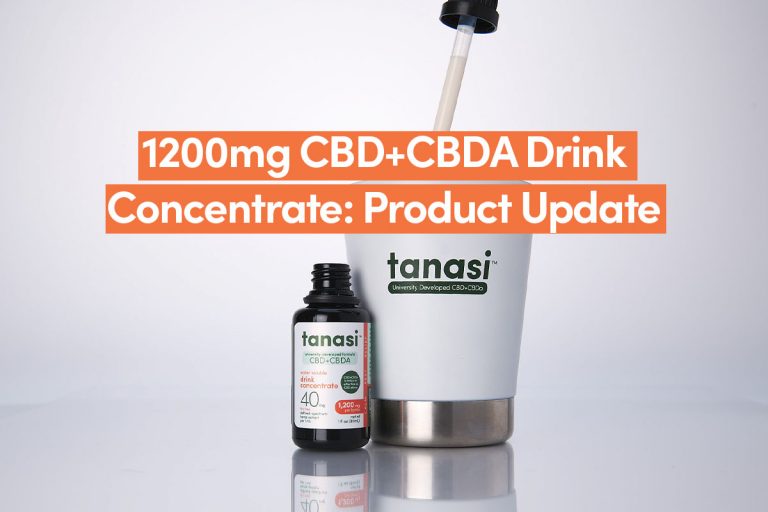
May 21 2024
Tanasi 1200mg CBD+CBDA Drink Concentrate Restock
Read More →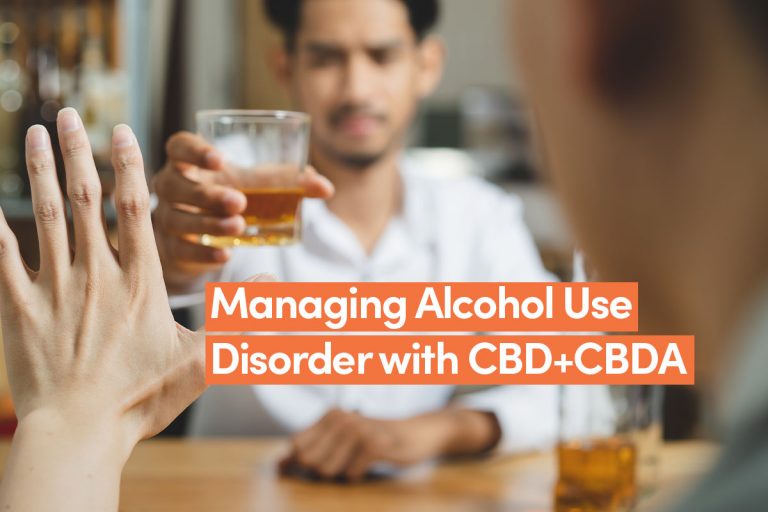
Mar 27 2024
Managing Alcohol Use Disorder with CBD+CBDA
Read More →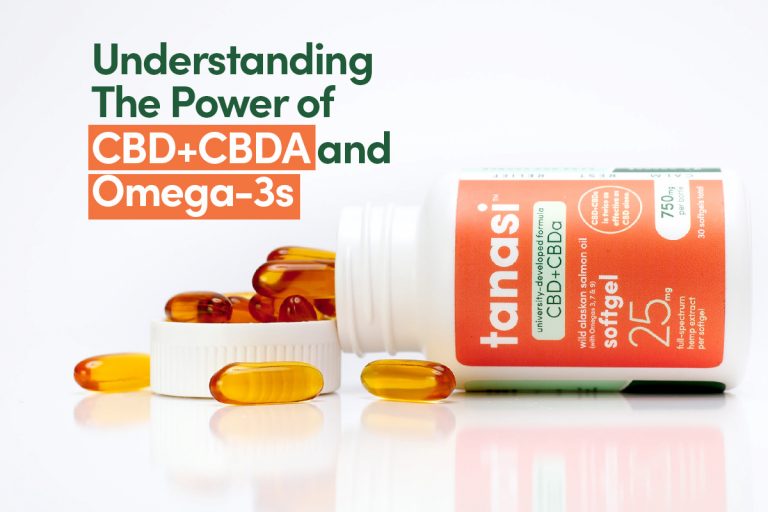
Jan 17 2024
Immune System Regulation: The Power of CBD+CBDA 1:1 formula and Omega-3 Fatty Acids
Read More →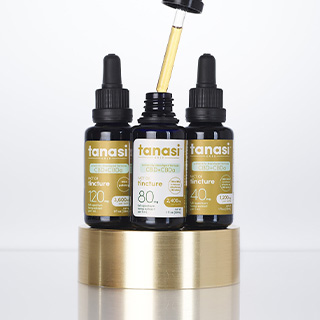
Nov 9 2023

